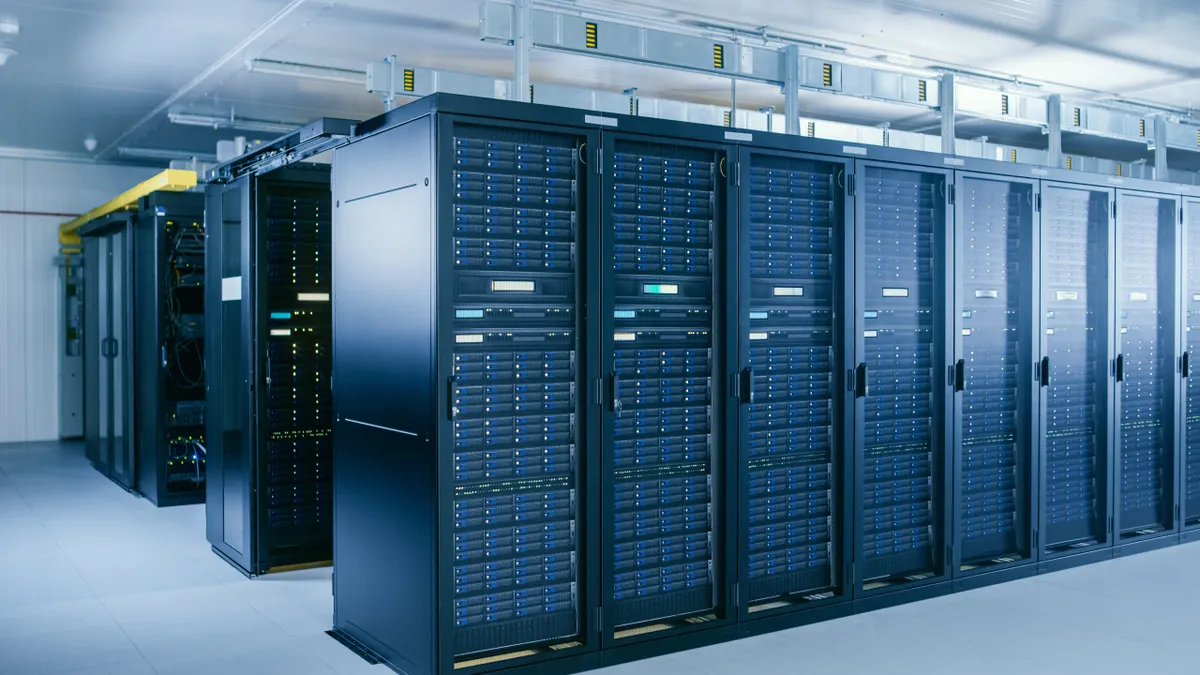ORLANDO, Fla. – With cloud costs on the rise, IT leaders will need to reassess how they select cloud AI providers to meet the needs of specific use cases and keep spending in check.
Selecting a cloud AI provider means connecting cloud and AI strategies, said Gartner Distinguished VP Analyst Ed Anderson, speaking during the Gartner IT Symposium/Xpo last week.
Cloud AI services are cloud-based platforms offering capabilities such as AI-optimized cloud infrastructure, prebuilt models, AI applications and agents, and development tools. Anderson said AI and cloud share a “symbiotic relationship.”
“Cloud provides the necessary infrastructure for AI,” Anderson said. “That’s why you see lots of investments in building out cloud AI data centers to establish that compute, storage, networking foundation that those AI services need.”
The top 10 hyperscalers accounted for more than half of global data center investments in 2024, which increased 51% year over year to $455 billion, according to research from Dell’Oro Group published earlier this year. Google, Microsoft, AWS and others have continued investing billions in AI infrastructure and capabilities this year.
Enterprise IT leaders have three main buckets of cloud providers to consider – hyperscale cloud, specialty cloud services and AI-optimized cloud services. Private cloud is also making a resurgence due to its ability to isolate certain AI workloads, especially for models working with sensitive data, Anderson said.
Anderson said there are four key steps to evaluate cloud AI providers:
- Identify specific needs for the organization or preferences for types of AI models, as well as environments to develop AI agents and enable AI applications.
- Drill into capabilities of different cloud AI providers and their implementations.
- Use existing relationships with cloud providers to negotiate for advanced AI services.
- Consider governance, security and skills an organization might need when adopting a new cloud AI provider.
While hyperscalers dominate the market, specialty cloud providers such as Akamai, Expedient, Vultr, DigitalOcean and Render meet use cases that “fall between the cracks of the hyperscalers,” Anderson said. Specialty cloud vendors can be more adept at supporting location-specific requirements, like if an organization needs a sovereign cloud in a specific country, Anderson said.
AI-optimized cloud providers, often called neoclouds, are also on the menu for CIOs, Anderson said. Some AI-optimized cloud providers include CoreWeave, Nvidia, DataCrunch, Runpod and Fluidstack.
Neocloud revenues are expected to surpass $23 billion in revenue in 2025, according to data from Synergy Research Group. The division of cloud providers is anticipated to reach $180 billion in revenues by 2030, growing at a rate of 69% annually.
Anderson said neoclouds offer the same capabilities as hyperscale and specialty cloud platforms with AI-optimized servers.
“The domain of AI-optimized cloud is not exclusive to these so-called neoclouds,” Anderson said.
When evaluating a cloud AI provider, AI-optimized vendors may have benefits in terms of their focus that can complement an organization’s overall environment, Anderson said.
While AI model training and inference are important functionalities, the next frontier is the ability to build, deploy and manage AI agents, Anderson said. This will become a top consideration when evaluating cloud AI providers, as AI agents introduce critical governance considerations and accentuate the need for security.
Most organizations will ultimately embrace a hybrid approach in their cloud AI strategies, Anderson said. A Microsoft customer, for example, could decide that another hyperscaler or specialty cloud provider helps accomplish certain business goals.
“Hybrid is going to be critical no matter what," Anderson said. "These things are going to have to interoperate. You may find that you end up with a mix of not only services but also providers who are supporting those environments.”















